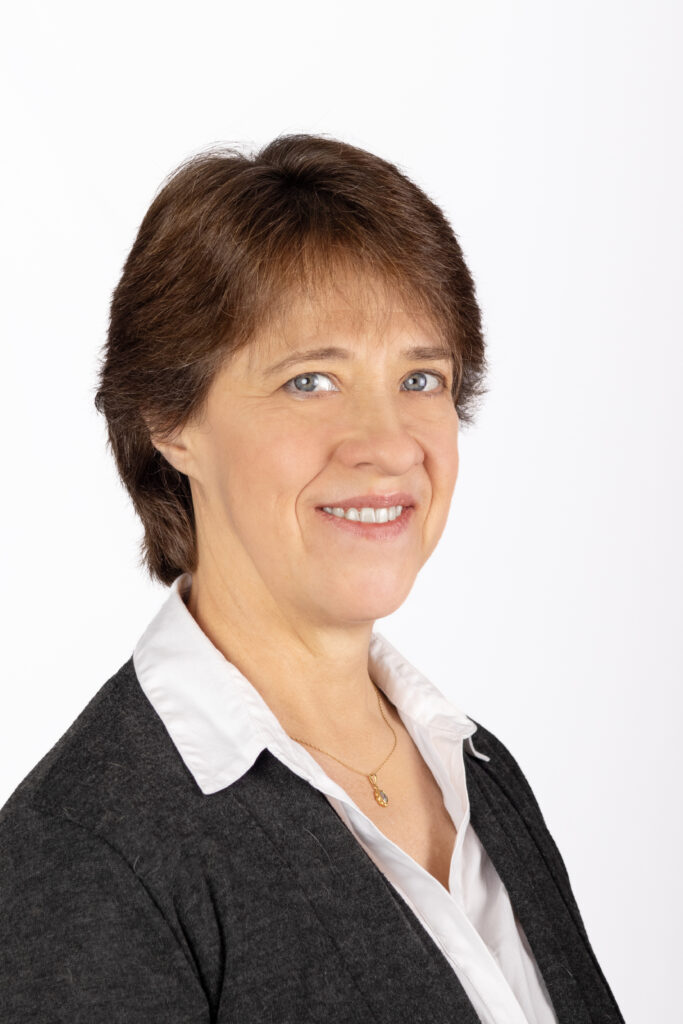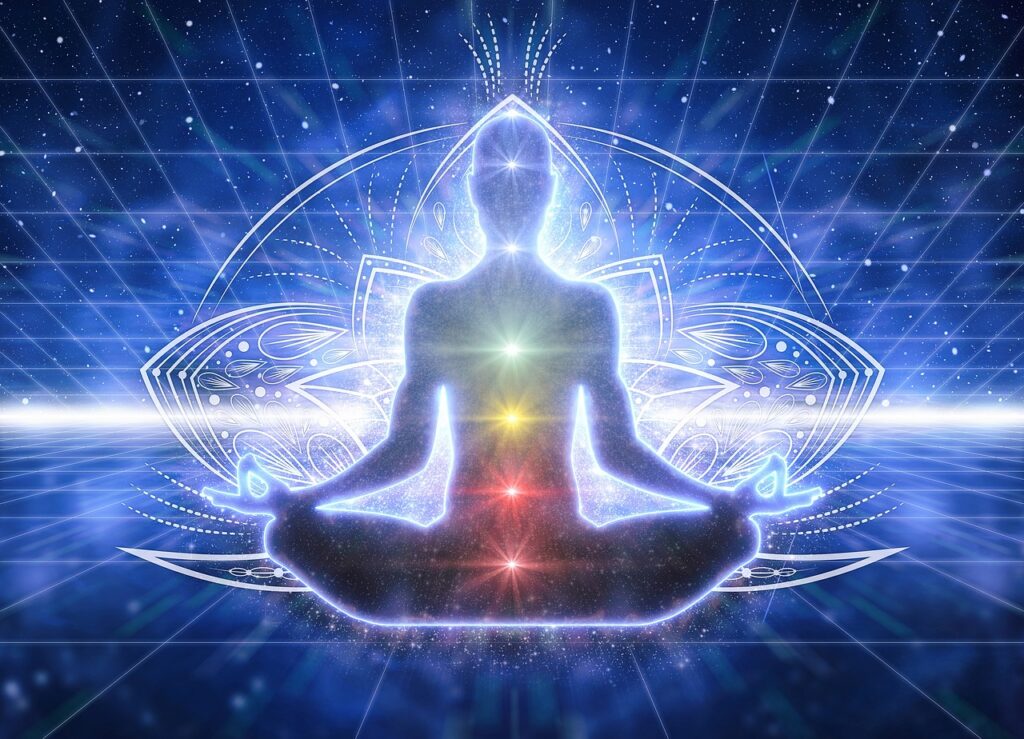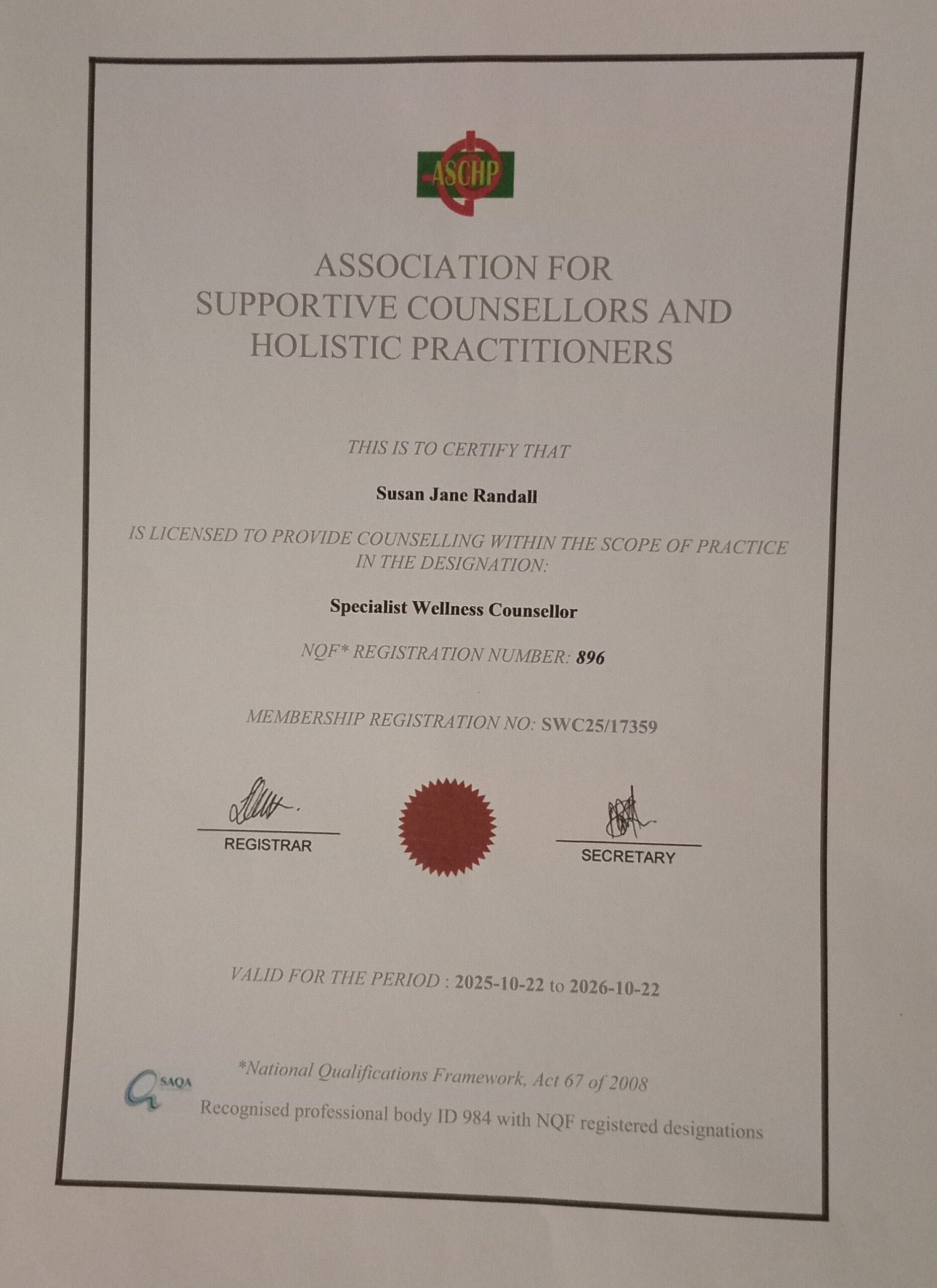Sue Randall
I work in the field of wellness coaching and trauma release exercise (TRE). I am based in Johannesburg, South Africa. I consult in person and online.
My scope of practice does not include treating or diagnosing mental health problems, such as post-traumatic stress disorder (PTSD), depression, and anxiety. I am a counsellor who offers a paid service to provide emotional support and education regarding general wellness and trauma recovery.
People who can benefit from my services include those who are lonely and isolated or bereaved. I have had deep bereavements myself, and my counselling approach draws from my personal insights as well as academic training. My scope of practice includes supporting people who lose pets.
People from dysfunctional families and those facing unwanted life transitions and circumstances can often benefit from wellness counselling, provided there is no underlying mental illness that should rather be treated by a psychologist or psychiatrist.
It can be hard to prioritise wellness when we are just trying to cope with daily life. I help people focus on their self-care, knowing we can give our best only when we care for ourselves.
I also provide emotional support for people who are chronically or terminally ill. I have Ehlers-Danlos syndrome and therefore take a special interest in pain management and the impact of chronic illness. A number of my clients have fibromylagia. I am also neurodiversity friendly.
Spiritual orientation
My perspective as a counsellor is compatible with diverse faiths, both the Judeo-Christian tradition and Eastern traditions like Buddhism and Hinduism. I seldom raise the topic of spirituality during counselling, but clients may want to talk about this aspect, because our beliefs often guide the way we find meaning in difficult life events.
I am open about my views so clients know what kinds of conversations they can have with me. More importantly, however, I work within a client-centred model. This means I always respect the client’s beliefs, and the counselling conversation flows around those beliefs rather than mine. Agnostic clients can also benefit from counselling with me.
It is a bit different with atheists. I believe in a higher consciousness or being, whether that is called God or something else. Atheists do not agree with this position. In my experience, atheists find viewpoints like mine deeply offensive and untrustworthy. For that reason, I would generally advise an atheist to find a different counsellor. An exception would be if you want to learn to meditate or use breathing exercises for stress management (for example). I could then assist, as these practices can be done at the purely human level. It is up to each client whether to incorporate a spiritual element into these methods.
Scope of practice
I do not help people who have (or think they might have) mental health issues. A clinical psychologist or psychiatrist should be consulted. I can refer clients to medical practitioners or psychologists.
My focus is on wellness counselling, which includes teaching mindfulness and meditation. I know about trauma and recovery and am mindful of these issues during counselling. I am also a registered Trauma Release Exercise (TRE) provider. For clients who wantt coaching rather than counselling, I can help them break their challenges down into realistic goals.
I am not a registered healthcare practitioner, so medical aids do not cover my fees. But I am registered with the ASCHP as a specialist wellness counsellor. This means you may be able to claim my fees in your tax returns.
My education
My undergraduate degrees were in psychology and English. My master’s degree (Wits, 2006) was in research psychology. I studied the measurement of resilience as an aspect of the personality. In 2018, I qualified as a TRE provider, and three years later I completed a certificate course in trauma counselling.
In addition to my training in Dr Berceli’s TRE methodology, I draw from the work of Liz Koch, Peter Levine, Bessel van der Kolk, Stephen Porges and other experts in trauma recovery.

Buddhist influences
I lived and worked at a Buddhist retreat centre for six years and completed my master’s dissertation in psychology during that time. My work spans both Eastern traditions and Western knowledge. Many Buddhist practices can help to reduce our stress level.
Bessel van der Kolk and his research team studied the brain scans of patients. They found that the parts of the brain that were developed by meditation and creative writing were also involved in trauma recovery. People who meditate often find they feel calmer and happier. Meditation can change our mental habits so that we get less bogged down by problems.
Meditation and breathing exercises are good for people of all faiths as well as those who are not religious. You do not have to be Buddhist to benefit from these methods. Meditation is part of many other spiritual traditions too, and Christian monks and nuns often meditate during their daily prayers.
My healing work also draws from the chakra system, a part of the Vedic tradition. The chakras are said to be energy centres that connect the spiritual aspect of the human mind to our bodies. The chakra system is a metaphysical concept. However, there are often main nerve connections and endocrine glands at the relevant places in our bodies.

Disclaimer
I am not a registered healthcare practitioner, and my fees are not covered by medical aids. I provide an educational and supportive service.
You may be able to claim my fees against tax. My ASCHP registration number is SWC25/17359.









